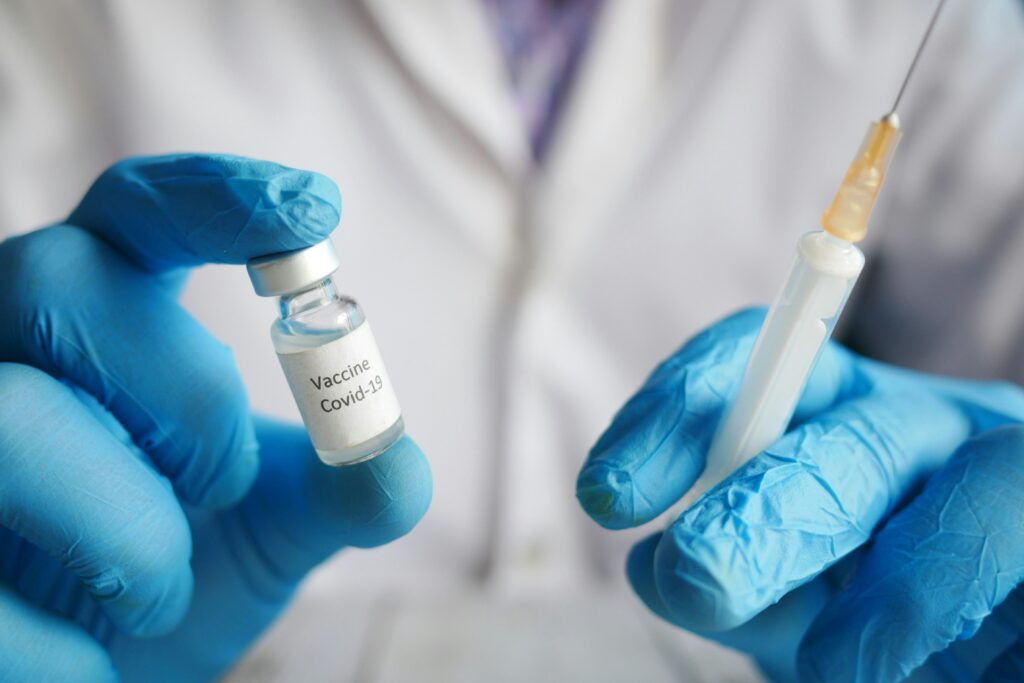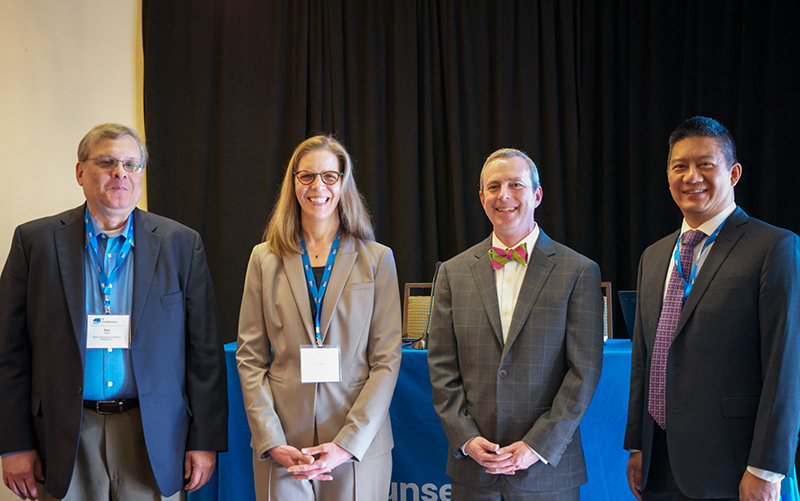The Covid-19 pandemic undoubtedly reshaped the landscape of healthcare and vaccine development in ways we have yet to imagine. As we navigate through another season of peak hospitalization with respiratory illness related to Covid-19 infection, scientists and researchers are continuously striving to innovate and enhance existing vaccine technologies to address emerging variants and bolster long-term immunity.
The initial Covid vaccines were a remarkable breakthrough that saved millions of lives, and the breakthroughs keep coming, with a host of exciting developments that make the vaccines even more effective and easier to administer.
The current injectable vaccines induce high levels of neutralizing antibodies in serum that protect the lower portions of the respiratory tract but do not offer the same level of protection to the upper respiratory tract, leaving multiple lung segments vulnerable to pending exposure and subsequent infection.
Current research is focused on enhanced protection against infection. The focus on mucosal surfaces and secretory IgA for vaccination administration has been gaining momentum over the last few years. Mucosal surfaces, including those in the respiratory tract, have their own immune mechanisms and, when intended as the source for vaccination administration, provides protection against both infection and transmission of Covid-19.
The introduction of mucosally administered vaccines, either intranasally or orally, is an exciting leap for the next-generation of development and remains in early stages of clinical development. Researchers agree that in order to induce broader immune protection, new antigen designs are warranted.
Covid vaccines: the next generation
The next generation of Covid-19 vaccines represents promising new ground in the fight against the virus, leveraging advancements in both science and technology to create even more effective, adaptable, and accessible immunization solutions.
1. mRNA vaccines
One of the most significant breakthroughs in vaccine development so far has been the introduction of messenger RNA (mRNA) vaccines, such as the updated Pfizer-BioNTech and Moderna vaccines recommended by the Centers for Disease Control and Prevention (CDC) in September of 2023.
The mRNA vaccine introduces genetic material into cells to produce a viral protein that triggers an immune response. Next-generation mRNA vaccines aim to refine delivery mechanisms, enhance stability, and broaden antigen coverage to provide protection against a wider range of viral variants. Another angle being investigated is the potential for self-amplifying mRNA vaccines, which would further optimize immune responses and reduce dosage requirements.
2. Multivalent vaccines
The opportunity to target multiple strains or variants of the virus simultaneously would offer improved assurance against the evolving nature of Covid-19. By incorporating diverse antigenic targets, the multivalent vaccine would offer broader protection ultimately diminishing the need for frequent updates or boosters. Efforts are underway to develop formulations combining a variety of viral proteins in order to elicit robust and durable immunity against both current and future variants. Additionally, there have been advancements in computational modeling that are contributing to the refinement of antigen combinations for a guarantee in efficacy.
On January 24, 2024, Capricor Therapeutics announced a collaboration with the National Institutes of Health (NIH) for clinical trial with their proprietary StealthX exosome-based multivalent vaccine for the prevention of SARS-CoV-2. According to Linda Marban, Ph.D., Capricor’s CEO, their vaccine is “multivalent and more stable,” with the potential for “broader and longer lasting immunity.” Additionally, their platform “is designed to combine the speed of response of an mRNA vaccine with the potential efficacy of a protein vaccine.”
3. Nanoparticle vaccines
The introduction of a nanoparticle-based vaccine would allow for unique advantages in terms of antigen presentation, stability, and immune modulation. By encapsulating viral antigens within nanoparticles, researchers will have the ability to enhance vaccine stability, facilitate targeted delivery to immune cells, and induce specific immune responses. The next-generation nanoparticle vaccine is being engineered with precise control over the particle shape, size, and surface properties which will optimize antigen presentation and immunogenicity. The specific shape allows for rapid integration of new antigens, enabling swift adaptation to emerging viral variants.
As the SARS-CoV-2 virus uses a protein on its surface to attach itself to human cells causing infection, companies like Novavax have developed a vaccine technology that organizes these surface proteins into a nanoparticle so the human immune system more easily recognizes them to provide protection against Covid-19.
4. Vector-based vaccines
These vaccines use a harmless virus as a vector. Think of a vector as an envelope, which delivers a specific message. The genetic material of the virus is modified so that it doesn’t cause disease. When the vaccine is administered, the virus delivers its genetic material into the cells, where the production of antigens is signaled so that the immune system can then respond by producing antibodies. This process activates immune cells that go on to fight off the virus.
By utilizing genetically engineered vectors, such as adenoviruses, to deliver viral antigens or genetic material into cells, they can induce strong and long-lasting immune responses, are stable in storage and distribution, and will only require a single dose for immunity. These capabilities, in their next-generation, are enabling a safer and more scalable vaccine with enhanced immunogenicity.
In 2022, the World Health Organization (WHO) approved 10 vaccines for Covid-19, which included 3 adenoviral vector-based vaccines. As of early 2023, AstraZeneca and Janssen Pharmaceutical have been undergoing development of specific adenoviral vectors with the SARS-CoV-2 S protein.
5. Universal vaccines
Beyond variant-specific vaccines, the next-generation research aims for a strategy to elicit broad protective immunity against diverse coronaviruses. This approach is intended to challenge conserved viral epitopes shared among different coronaviruses to induce a cross-reactive immune response. By targeting specific regions of the virus, universal vaccines have the potential to provide long-term protection against current and future coronaviruses. Efforts are underway to conserve epitopes, design immunogens, and isolate appropriate candidates for preclinical studies.
At the Vaccines Summit in 2023, GeoVax Labs, Inc. presented positive data for their universal coronavirus vaccine. In preclinical studies, their MVA-vectored multi-antigen Covid-19 vaccines induce protective immunity against multiple SARS-CoV-2 variants from Alpha to Omicron.




